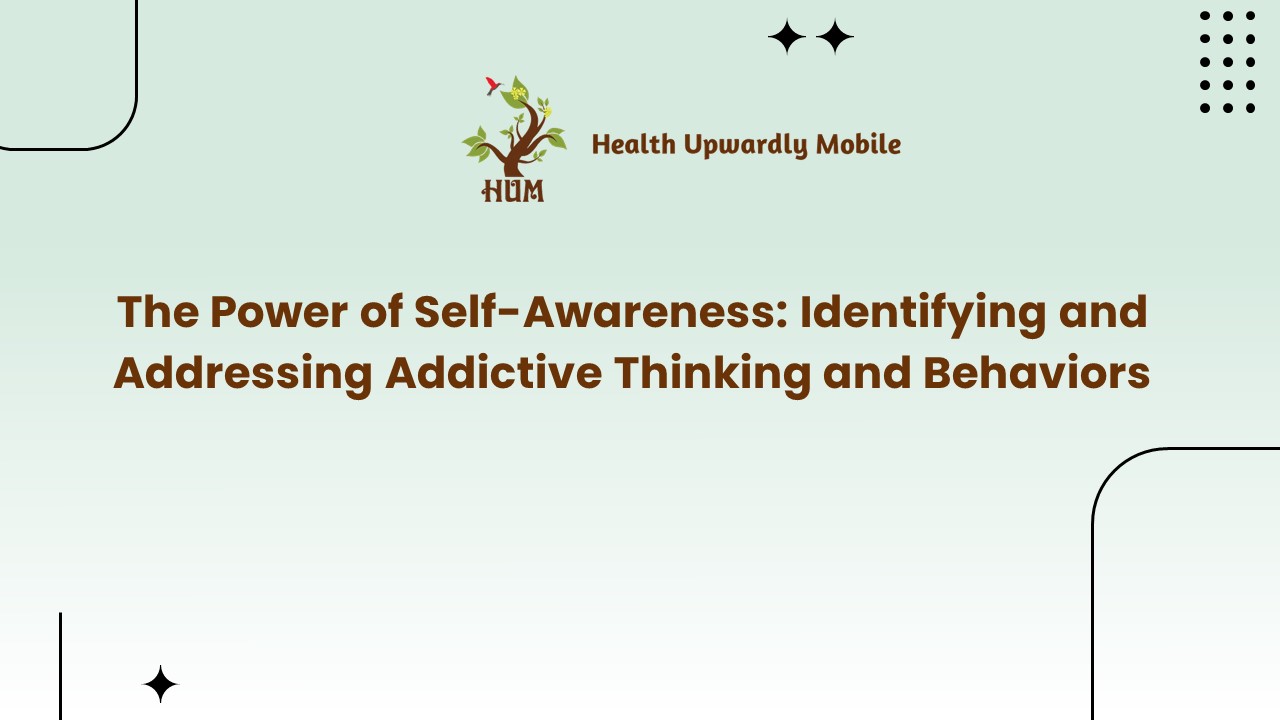The Power of Self-Awareness: Identifying and Addressing Addictive Thinking and Behaviors
Title:
The Power of Self-Awareness: Identifying and Addressing Addictive Thinking and Behaviors
Description:
Addictive thinking and behavior can be incredibly destructive, leading to physical, emotional, spiritual and psychological harm. –
Number of Views:1
Title: The Power of Self-Awareness: Identifying and Addressing Addictive Thinking and Behaviors
1
The Power of Self-Awareness Identifying and
Addressing Addictive Thinking and Behaviors
2
Table of contents
01
04
02
05
03
06
07
- INTRODUCTION
- THE IMPORTANCE OF SELF-AWARENESS
- UNDERSTANDING ADDICTIVE THINKING AND BEHAVIOUR
- IDENTIFYING ADDICTIVE PATTERNS
- ADDRESSING ADDICTIVE PATTERNS
- SEEKING HELP AND SUPPORT
- CONCLUSION
3
INTRODUCTION
- Addictive thinking and behavior can be incredibly
destructive, leading to physical, emotional,
spiritual and psychological harm. In this blog
post, we'll explore the importance of
self-awareness when it comes to addictive
thinking and behaviours, and we'll provide some
practical tips for identifying and addressing
these patterns in your own life.
4
UNDERSTANDING ADDICTIVE
THINKING AND BEHAVIOUR
- Addictive thinking is something that we all can
experience when we are feeling stressed or
insecure. Addictive behaviors can manifest in a
number of ways, from substance dependence to
compulsive gambling, shopping, or eating. This
can lead to a range of negative consequences,
including physical health problems, financial
issues, and relationship difficulties.
5
THE IMPORTANCE OF SELF -AWARENESS
Self-awareness is key when it comes to
identifying and addressing addictive thinking and
behaviors. Self-awareness involves being in tune
with your thoughts, feelings, and behaviors, and
recognizing how they impact your life.
6
IDENTIFYING ADDICTIVE
PATTERNS
To identify addictive patterns in your own life,
it's important to pay attention to your thoughts,
emotions, and behaviors. It can also be helpful
to keep a journal of your thoughts and feelings,
particularly when you're feeling stressed or
overwhelmed.
7
ADDRESSING ADDICTIVE PATTERN
Once you've identified your addictive patterns,
it's important to take action to address
them.This might involve developing healthier
coping mechanisms, such as exercise, mindfulness
or meditation. It could also mean seeking
professional help, such as therapy or support
groups.
8
SEEKING HELP AND SUPPORT
There are a number of resources available for
those struggling with addictive thinking and
behaviors. These can include addiction treatment
programs, support groups such as Alcoholics
Anonymous, and online resources such as forums
and blogs.
9
CONCLUSION
Addictive thinking and behaviors can be
incredibly challenging, but by understanding your
own triggers and developing healthy coping
mechanisms, you can work towards a life in
recovery and create a happier, healthier life for
yourself.































